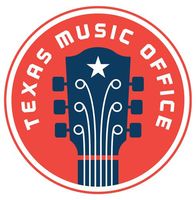“The main role of the Texas Music Office is to ensure that the Texas Music Industry and the people that rely on it as their livelihood are well represented both at home in Texas and nationally by decision makers in Congress”
The Texas Music Office is one of the older (if not the oldest) modern music office in the world. Over the past 25 years, its work has been fundamental in strengthening the livelihood of the local music community through political processes such as the passing of the Music Modernization Act and by giving support in the face of emergencies such as the COVID pandemic, the Astroworld Festival Tragedy. Over the past 2+ decades, the work of Texas Music Office has been evolving constantly with overall positive results. As a result, this organisation has become a sort of gold standard of how a world class music office should look like. This is why it’s no surprise that the TMO is frequently pointed out as a best practice examples by leaders of thought in the music cities scene.
For this week’s #InConversationWith we sat down with Brendon Anthony, Director of the Texas Music Office, to get some insights on music policy in Texas and all of the projects that are part of this organisation. Scroll down to learn about inspiring projects such as the Music License Plate Programme, the Texas Music Incubator Programme and more.
Do you want to connect with other music professionals and advocates that are is using music to promote social, cultural and economic development in its community? Then join the Music Cities Community.
Hi Brendon, it’s always exciting to chat with you and discover new details of the work of the Texas Music Office and overall music policy making in Texas.
To begin this conversation, we’d like to ask you about the evolution of the Texas Music Office. Can you tell us about the main concerns when the office was created in 1990, and how they have evolved through time?
When the office was created, early on the main concerns were about creating the clearinghouse for information about the industry as laid out in the legislative mandate that created the office in the early 90’s. To that end, a database was created and a“whitepage” was produced annually and made available to industry stakeholders in Texas and across the country. Many found this very useful prior to the advent of the online search engine, which eventually made these “whitepages” largely obsolete.
Currently, the overarching concern is to make the office relevant within the greater music industry and advocacy landscape. Since I started to lead the office in 2015 we’ve been forging new and stronger connections with national trade organizations, PROs, and elected leadership both in statehouse and in Congress.
This has been key to address relevant concerns for the Texas music ecosystem such as the Copyright reform (Music Modernization Act), DOJ rulings, anti-piracy concerns, policies pertaining to music venue protection and support, concert safety (I chaired the committee that investigated and reported to the Governor re the Astroworld tragedy).
> > > > > > > > > >
Go here to read the full interview and to learn more about the Texas Music Program:
https://www.musiccitiesevents.com/post/inconversationwith-brendon-anthony-the-state-of-music-policy-making-in-texas
Photo: Texas Music Office | https://www.facebook.com/texasmusicoffice

